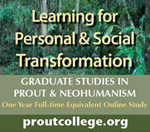Ian Redmond urges ban, not regulation, on keeping the animals
The primate pet trade must be banned in the U.K. and elsewhere, not just regulated, to prevent the animals’ needless suffering and imminent extinction, said renowned wildlife biologist Ian Redmond OBE.
“Keeping primate as pets in the U.K. not only causes unacceptable levels of suffering to the individual animals but also influences the fate of wild primate populations and hampers efforts to halt biodiversity loss,” Redmond said.
“To stem the tide of live primates being removed from the wild, the market for such animals must be eliminated,” he said.
Redmond is a noted primate and elephant conservationist who was taught by Dian Fossey and introduced naturalist and film maker Sir David Attenborough to apes.
He is chairman of Bristol-based Ape Alliance, which encourages conservation organisations to work together, and also serves as a council member for the Primate Society of Great Britain.
The 376 species of primates’ range from humans and apes to monkeys and prosimians (“premonkeys”). The smallest is the pygmy mouse lemur, which fits in the palm of a hand. The largest – the gorilla – can weigh more than 400 pounds. Most primates live in warm climates and depend upon forests to survive.
It is estimated that for every infant captured alive, up to 10 other family members may be killed, often for bushmeat.
The illegal pet trade – along with logging, deforestation, transmission of disease and conversion of habitat as well as poaching for bushmeat – has resulted in the decline of almost half of the 630 recognised primate species and sub-species across equatorial Africa, Asia and Latin America.
“These threats will result in the extinction of many primate species across most of their range in the first quarter of the 21st century.
“These demands for bushmeat and live infants combine to drive devastating poaching and trafficking of these that also are losing habitat, thus driving them to the edge of extinction,” Redmond said.
“The Code of Practice for the Welfare of Privately Kept Non-Human Primates guidelines provide standards for primate pets but suffering still occurs because enforcement is lacking.
“As long as primates are kept as pets, they will suffer in poor conditions and wild primates will be endangered,” he said.
The loss of breeding adults and their offspring not only is catastrophic to the future of primate species but also to those species of plants and animals ecologically dependent upon them, Redmond said.
“Primates are keystone species in tropical forests that are essential to global climate stability,” he said.
Redmond said stopping the removal of primates from the wild requires eliminating the markets for such live wild animals.
“A driving force for this international market is the legality of private ownership and sale of primates in the United Kingdom and other developed countries, which is well known throughout the world.
“Because icons of popular culture and wealthy individuals keep them as pets, primates are perceived as fashionable and constitute a status symbol,” he said.
Another problem is the animals’ portrayal in films, television and advertising, Redmond said. Infant and juvenile chimpanzees, orangutans, capuchin monkeys and macaques are depicted by the entertainment industry as docile, trainable, cute, humorous and good companions for humans, which just fuels the primate pet trade, he said.
About Ian Redmond:
Ian Redmond OBE received his bachelor’s degree with honours in biology in 1976 from the University of Keele, was elected as a Scientific Fellow to the Zoological Society of London in 1979, and became a Chartered Biologist in 1986. He has served as a consultant for a variety of conservation and animal welfare organizations, including the Born Free Foundation, International Fund for Animal Welfare, International Primate Protection League, and World Society for the Protection of Animals. Redmond also has been a scientific advisor for and/or appeared in about 100 natural history documentaries for the BBC and National Geographic. He is a Patron of Wild Futures, which runs the Monkey Sanctuary near Looe, Cornwall, where rescued pet primates are given lifetime care in a suitable environment. Redmond has authored many books, scientific research papers for peer-reviewed journals, and hundreds of news reports and feature articles for wildlife magazines and newspapers, and has lectured around the world on the plight of various endangered species.









